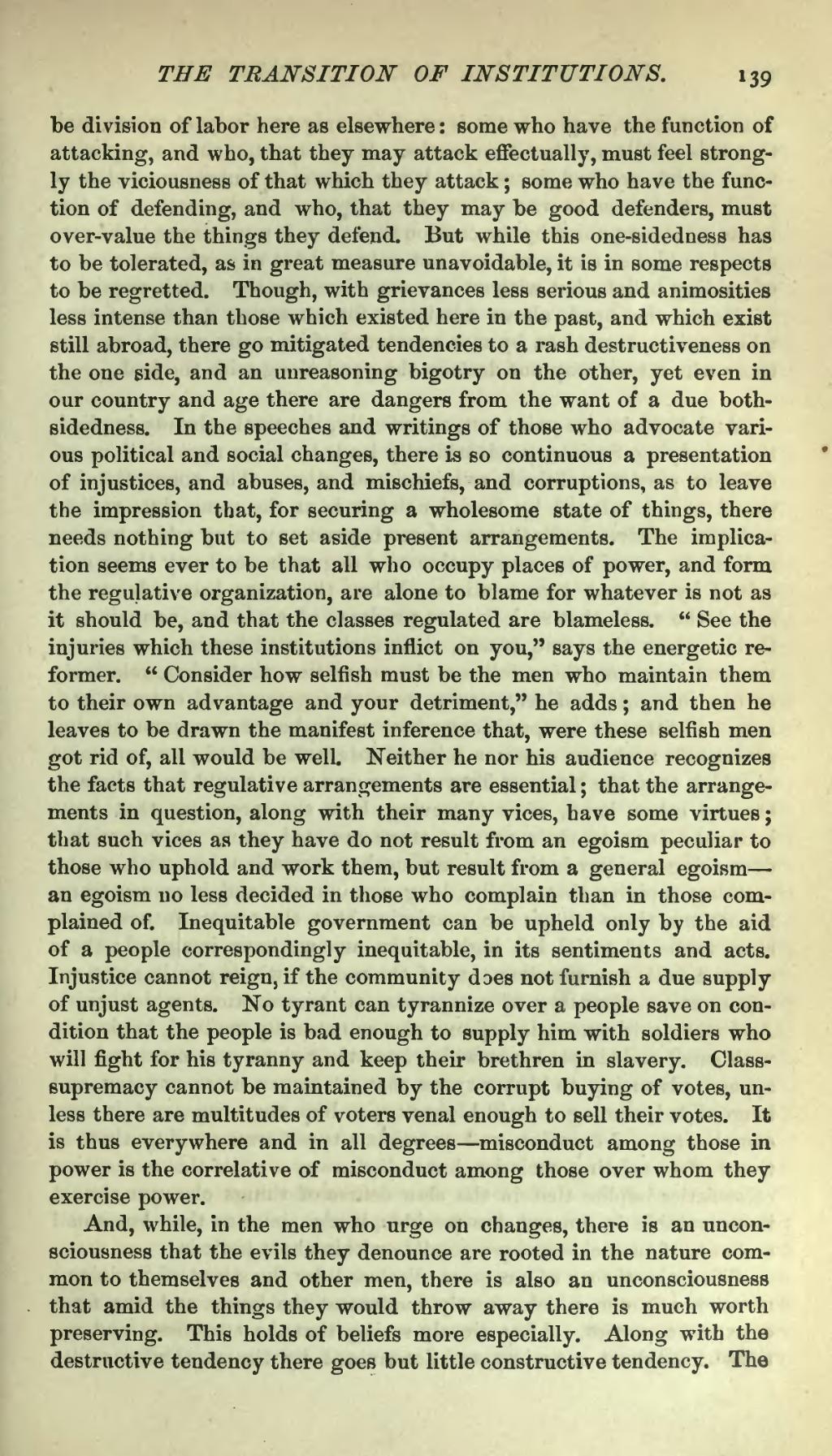be division of labor here as elsewhere: some who have the function of attacking, and who, that they may attack effectually, must feel strongly the viciousness of that which they attack; some who have the function of defending, and who, that they may be good defenders, must over-value the things they defend. But while this one-sidedness has to be tolerated, as in great measure unavoidable, it is in some respects to be regretted. Though, with grievances less serious and animosities less intense than those which existed here in the past, and which exist still abroad, there go mitigated tendencies to a rash destructiveness on the one side, and an unreasoning bigotry on the other, yet even in our country and age there are dangers from the want of a due both-sidedness. In the speeches and writings of those who advocate various political and social changes, there is so continuous a presentation of injustices, and abuses, and mischiefs, and corruptions, as to leave the impression that, for securing a wholesome state of things, there needs nothing but to set aside present arrangements. The implication seems ever to be that all who occupy places of power, and form the regulative organization, are alone to blame for whatever is not as it should be, and that the classes regulated are blameless. "See the injuries which these institutions inflict on you," says the energetic reformer. "Consider how selfish must be the men who maintain them to their own advantage and your detriment," he adds; and then he leaves to be drawn the manifest inference that, were these selfish men got rid of, all would be well. Neither he nor his audience recognizes the facts that regulative arrangements are essential; that the arrangements in question, along with their many vices, have some virtues; that such vices as they have do not result from an egoism peculiar to those who uphold and work them, but result from a general egoism—an egoism no less decided in those who complain than in those complained of. Inequitable government can be upheld only by the aid of a people correspondingly inequitable, in its sentiments and acts. Injustice cannot reign, if the community does not furnish a due supply of unjust agents. No tyrant can tyrannize over a people save on condition that the people is bad enough to supply him with soldiers who will fight for his tyranny and keep their brethren in slavery. Class-supremacy cannot be maintained by the corrupt buying of votes, unless there are multitudes of voters venal enough to sell their votes. It is thus everywhere and in all degrees—misconduct among those in power is the correlative of misconduct among those over whom they exercise power.
And, while, in the men who urge on changes, there is an unconsciousness that the evils they denounce are rooted in the nature common to themselves and other men, there is also an unconsciousness that amid the things they would throw away there is much worth preserving. This holds of beliefs more especially. Along with the destructive tendency there goes but little constructive tendency. The

